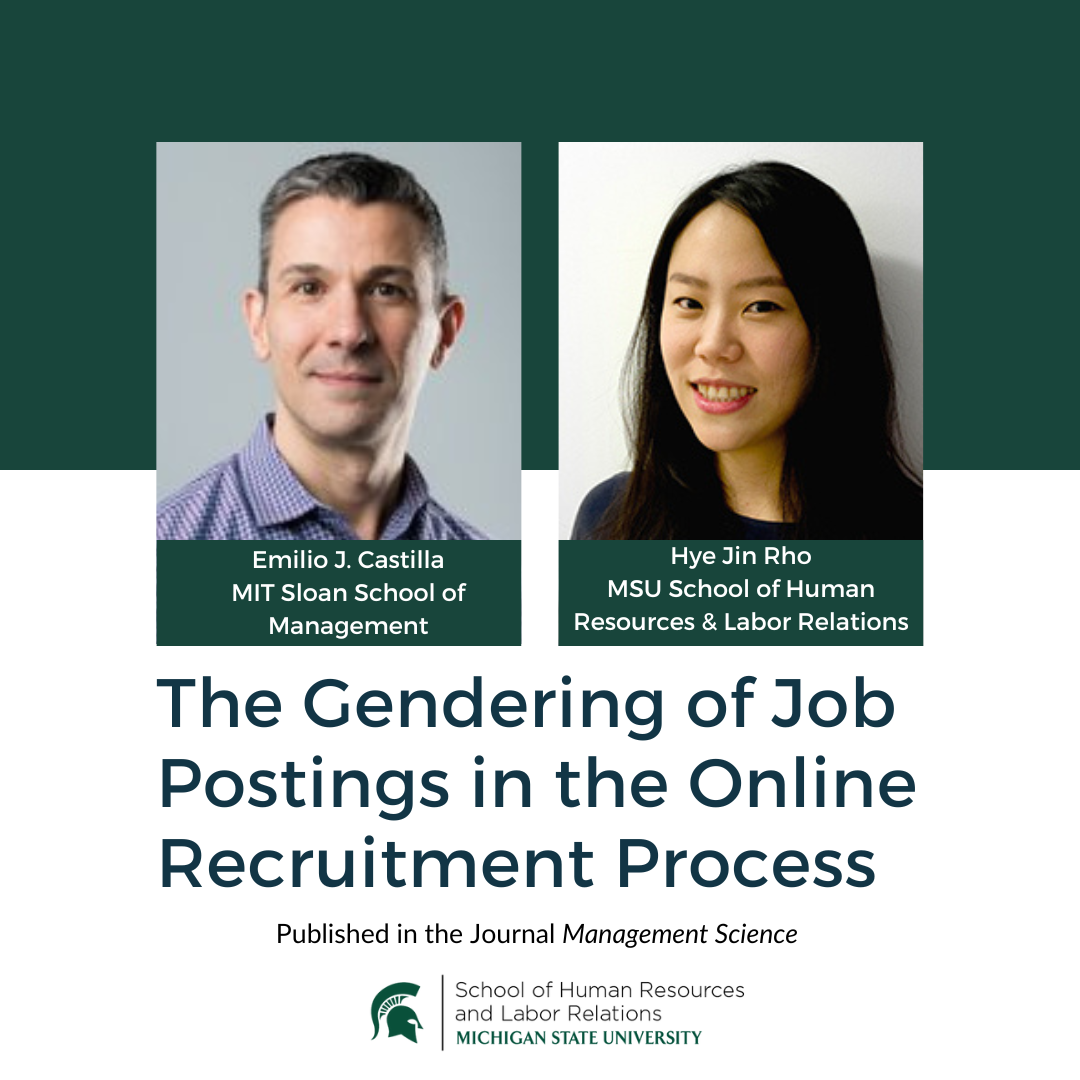Efforts to Craft Gender-Neutral Job Postings Have Negligible Effects on Gender Equality

Gender segregation remains a significant problem in many occupations and organizations. To solve this problem, many U.S. employers now seek to craft gender-neutral job postings.
Do gender-neutral job descriptions make a difference in applicant behavior? According to new research by MIT Sloan Professor Emilio J. Castilla and Hye Jin Rho an Assistant Professor at the School of Human Resources and Labor Relations at Michigan State University, attempting to make job postings more gender-neutral has negligible practical effects on whether men and women are likely to apply for a job.
Castilla and Rho’s research investigated whether employer recruitment efforts to craft gender-neutral job postings are successful in encouraging women and men to apply equally for jobs.
Prior to Title VII of the 1964 Civil Rights Act, explicit gendered hiring was common in the United States, with many employers’ job ads in newspapers openly encouraging gender-specific candidates to apply (see, e.g., Bem and Bem 1973, Pedriana 2004). Although U.S. legal barriers prevent employers today from specifying any gender preference in job ads, the language used may nonetheless reveal the implicit gender preferences of hiring managers and recruiters.
Published in the journal Management Science, Castilla and Rho's article "The Gendering of Job Postings in the Online Recruitment Process" found that women were slightly more likely to apply for jobs with more feminine wording, but that the overall effect of gender-neutral job postings on applicant behavior was minimal.
"Our findings reveal that both the language used when posting jobs and gender of the recruiters have no effects that matter in practice on how women and men behave during recruitment," Castilla and Rho conclude. This outcome, Castilla and Rho write, was"unexpected." However, the authors note that their findings have significant practical implications, as their research suggests that the increasingly popular approach of trying to"degender" job listing language may not have the effect employers hope for.
"We caution that the practice of simply altering the language of job descriptions may not necessarily help organizations address diversity issues," the authors write. Instead, Castilla and Rho conclude,"We encourage scholars and employers to propose and test better solutions" for achieving gender diversity in their applicant pools.

